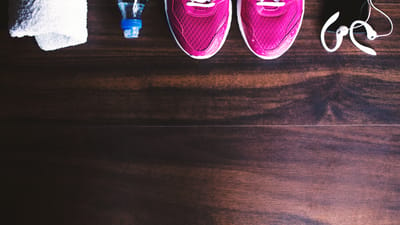
10 Essential Resources for Your Eating Disorder Recovery
Explore our top 10 eating disorder resources packed with expert tips, tools and insights to support your recovery.
Suggestions
Common Searches
We want to equip our patients, alumni, community members and professional partners with the resources they need to thrive. Find articles and blogs, videos, downloads and podcasts that will inspire and educate you on your recovery journey.
Show me resources for -

Explore our top 10 eating disorder resources packed with expert tips, tools and insights to support your recovery.

Discover 10 essential resources with expert tips, insights and tools to support your loved one through eating disorder recovery.

In a world where mental health care is often seen as one-size-fits-all, Akiera Gilbert is on a mission to break down barriers and open the doors of…

What is IOP? Learn all about IOP treatment for eating disorders and discover the benefits, including staying connected to your school, work and/or…

Here’s how dialectical behavior therapy (DBT) skills can support your mental health. Get the facts about emotion regulation, distress tolerance and…

What’s the link between energy drinks and eating disorders, and are young women and adolescents at high risk? Our nutrition director offers insights.

A support guide for loved ones.

Discover how shifting the conversation from weight restoration to brain rescue can improve outcomes for kids and teens with eating disorders.

As an eating disorder survivor turned eating disorder therapist, Carly Compton strives to be the person that she wishes she would have known when she…

Explore five eating disorder coping skills and get personal insights from the experts at Eating Recovery Center.

Is your child feeling pressured to bulk up for sports? Learn the dangers and five ways to help them build a positive relationship with food.

Binge eating disorder (BED) is the most common eating disorder, yet often it is unrecognized and untreated. Join us in raising awareness around the…

Discover why co-occurring conditions happen and six proven therapies to help you heal.

Discover six ways to navigate conversations around weight loss at the doctor’s office – whether you are in eating disorder recovery or not.

This curriculum is designed to guide you through a journey of understanding and unlearning weight stigma. As you engage with the content, we encourage…

What is a highly sensitive person, and how can these traits impact someone’s mental health? Learn more.

While learning about eating disorders, you’ve probably come across many eating disorder abbreviations. Some might be familiar to you, but others could…

Over 40% of U.S. adults experience weight stigma. Let’s explore what this means and why it matters.

See how the eating disorder ARFID affects children. Learn how to recognize the signs of ARFID and how to get help, with insights from ARFID experts.

It can be confusing to know what “normal” eating is versus what counts as disordered eating. In this piece, we discuss an eating disorder called…

View ARFID symptoms in adults with insights from ARFID researchers and clinical experts. Discover how to get an ARFID diagnosis and treatment.

Storyteller and artist Landon Bryant explores his journey from struggling with life’s basic challenges to finding success and support after an adult…

For generations, college students have faced many stresses related to this major life transition, maneuvering through the challenges of a new…

College can be a messy, exciting, scary, and busy transition, one that can be even more trying for those in eating disorder recovery. Yet, college can…

Discover our 7 essential tips for college professionals to support students struggling with eating disorders and mental health concerns.

Here are 15 practical ways to manage eating disorder triggers, from building support systems to navigating social media without harm.Ask for…

The article highlights concerns about the widespread marketing of GLP-1 medications like Ozempic for weight loss. The experts at Eating Recovery…

When and how can someone return to exercise while in eating disorder recovery? Hear what our experts have to say.

ADHD is tied to eating disorders like anorexia, bulimia and ARFID. Learn more about the connection and how to find help.

Every day, psychiatry physician Dr. Maryrose Bauschka uses her expertise in treating eating disorders to provide excellent care to our patients. But…
Hide Last Child Layout Div
© 2025 Eating Recovery Center. All rights reserved. Terms & Conditions | Privacy Policy